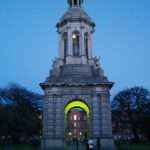Schools and faith
Education minister Jan O’Sullivan’s decision to review Rule 68 of the rules governing National Schools, a rule which decrees “religious spirit should inform and vivify whole work of school” and which regards religion as “by far the most important” subject might allow for the possibility of a recovery of the Gospel way of doing things. The faith proclaimed by Jesus of Nazareth is a matter of choice, being a follower of his is a voluntary matter; nowhere in the Gospel is learning, discipleship, a matter of compulsion.
The church abandoned the voluntary principle in medieval times, compulsion became the order of the day. If being burned at the stake was the alternative, then most people accepted the authority of the church. By the 21st Century, one might have thought that the last vestiges of compulsion had disappeared, but they remain in subtle, and sometimes not so subtle, forms.
Because the Irish state began in 1922 with very limited resources (one of the first acts of the finance minister was to cut the old age pension from ten shillings a week to nine), the ideals that had motivated its founders soon faded as they grappled with grim realities. There was no option but to allow the churches to continue the roles they had played in the fields such as education and health care. Perhaps, given the nature of Irish society, this would have happened anyway.
Ireland in 2014 allows voluntarism, no-one is compelled to be anything, except choosing to be nothing can bring unanticipated consequences, like finding it almost impossible to find a primary school place for your child in a school where religious observance is not compulsory. It is a situation virtually unchanged by the succession of scandals and reports
Catholic primary schools have a strong Catholic ethos, religious devotions and preparation for the sacraments form an integral part of church life. The much smaller number of Protestant schools, which are often heavily oversubscribed, tend towards a much broader understanding of what being a ‘church school’ means, the ethos would be ‘Christian’ rather than that of a particular church; none I know of would expect whole classes, or even the whole school, to attend overtly denominational occasions, such as Holy Communion. Outside of those schools, the Educate Together movement seeks to provide a third stream, but options to attend one of its schools are limited, particularly in rural areas.
Had the churches in 1922 been compelled to espouse Gospel principles, allowing people freedom of choice, allowing faith to be a matter of choice, they would never have continued to exercise the influence and power they grew to possess and the horrific stories that emerged from the tribunals would mostly have been avoided. May Jan O’Sullivan be blessed in trying to point the church back to its roots.


Pingback:Revising Ancient Rules for Primary Schools - Bock The Robber